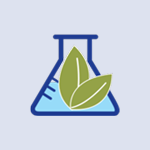The 27th Annual Convention & Exposition of the American Association of Naturopathic Physicians was held August 15–18, 2012, in Bellevue, Wash. The AANP convention is an advanced program designed for naturopathic physicians and other healthcare professionals and medical students. The four-day event offered a total of 35.5 continuing education credits and featured 47 speakers and more than 130 exhibitors. Topics included oncology, women’s health, specific nutrients and botanicals, and more.
“The conference was a spectacular success," says Jud Richland, AANP's new chief executive officer. "Attendance was high, the presentations were top-notch, and the energy was palpable. While it was my first AANP conference, the sense of camaraderie and family was amazing.”
Various Perspectives
Robert Rountree, MD, gave a lecture that inspired the audience to have a greater appreciation of the nonlinear and complex nature of foods and their effects at a cellular level. Specifically, he spoke about a burgeoning appreciation for the role of “hormesis” at a cellular level. Hormesis is the concept that a substance that is toxic at high amounts may have beneficial effects at low doses. Tying the entirety of this concept together with diet, Rountree gave examples of phytochemicals that act as hormetic agents and reviewed the concept of oxidation within cells as an adaptive stress response that is based in a hormetic response to various oxidative pressures in cells. This progressive view of the molecular effects of a whole foods diet was well received.
Dan Ullman, MPH, gave an empassioned lecture on homeopathy and its ability to transform a person from a disease state to better health. A renowned lecturer on homeopathy, Ullman presented many of the theories that make its efficacy plausible. While ultimately there is still no answer to the question, “How does it work,” Ullman left little room for doubters of the efficacy and plausibility of homeopathy as it is practiced around the world.
Valter Longo, PhD, from University of Southern California, detailed his research on the effects of caloric restriction. Longo explained the physiology behind the practice, dubbed the differential stress response, in possibly limiting the toxicities of chemotherapies while enhancing their efficacy. Reviewing the many rodent studies as well as the limited human trials, Longo explained that even if it were to work as planned, compliance has been a hurdle as asking anyone to make dramatic caloric restrictions is extremely difficult in clinical practice.
Kevin Spelman, PhD, gave an in-depth lecture on endocannabinoids and their omnipresence throughout our ecosystem. The presence of endocannibinoid receptors on organisms as primitive as hydra has left their role in biological systems a mystery yet to be solved. Of course, most relevant to the audience is the presence of the endocannibinoid sytem in humans, in both the peripheral tissues and the central nervous system. Spelman emphasized the multifaceted role of these receptors on health and disease, with an appreciation for the fact that the receptors are there for reasons beyond simply waiting for the well-known cannibinoids of marijuana to come along. Spelman reviewed the chemistry and the role of these phytocannibinoids in detail and outlined in detail their presence on common herbal medicines such as echinacea species and prickly ash. Finding out that many of our botanical medicines contain phytocannabinoids is like finding out an old friend possesses a talent you never knew of—it is endearing and brings a new appreciation and perspective to the relationship.
Tori Hudson, ND, gave an update on women’s health issues that included conventional screening and treatment techniques combined with naturopathic updates on treatments. In this evidence-based approach to women’s health, Hudson gave practical advice on assessing and treating our female patients based on her extensive experience as a clinician. With everything from updates in screening mammography and pap recommendations to the more esoteric use of green tea in influenza, this expansive lecture informed and updated even the most seasoned clinicians in the audience.
Listening may be the most powerful tool physicians have in the healing process.
Paul Epstein, ND, gave a presentation on the power of unconditional presence in the therapeutic relationship. Epstein gave advice about how to be with a person who is experiencing physical and/or emotional pain. “It is our role as physicians to help guide people on their journey back to who they really are,” said Epstein. “Listening may be the most powerful tool physicians have in the healing process.” He cited a 2009 study showing that patients most want trust, hope, and understanding from their primary care physicians. Epstein, who has been in clinical practice for 30 years, said that although it may be challenging for physicians, it’s important they become comfortable “hanging out in the unknown.”
Lise Alschuler, ND, FABNO, spoke to a large lunch crowd on Saturday, August 18, joking that she won the award for the longest presentation title: “A Tale of How Stress Perforates the Garment of Life with Chronic Disease … How Naturopathic Medicine Can Weave the Fabric Back Together.” Alschuler gave an enlightening and entertaining description of the intricate yet predictable molecular and pathophysiological carcinogenic impacts of stress. She also provided the audience with clinically relevant and scientifically substantiated stress reduction and intervention strategies. “It’s vital for practitioners to explore ways to interact with patients about stress and cancer without implying blame or guilt,” said Alschuler.
Join Us Next Year
Next year's AANP convention will be held July 10–13 in Keystone, CO. Natural Medicine Journal will provide more details about speakers and attendance as the date nears.






